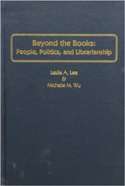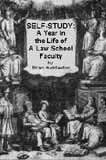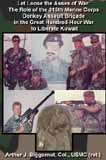Everybody else will be quoting the obvious memorable lines from their favorite Paul Newman movies, but luckily YouTube has the scene with one of my favorite legal quotes from any movie, this one from Newman in Hud on how to interpret laws:
All the first year students are working on a research assignment this weekend, so today I announced that I won’t answer any question until they first tell me their favorite Paul Newman movie. Typical responses include “Who”?, “Ummmmm”?, “Isn’t he a singer or movie guy?” and “I know his salad dressing”. But one student said “Cat on a Hot Tin Roof” right off the bat so there may be hope yet for some of this generation.
“Well, I always say the law was meant be interpreted in a lenient manner, and that’s what I try to do. Sometimes I lean to one side of it, sometimes I lean to the other.”
The final scene in Hud when he is left alone in the house is one of the saddest I know in any movie. Its subtle and underplayed because, though he’s won and the farm is his, popping open his beer is the only celebration available to him and we know the future only holds more of the same emptiness he now has all around him. Larry McMurtry, who wrote "Horeseman Pass By”, which Hud is based on, has written two sequels to “The Last Picture Show” that updates those characters, so I’ve always wondered if he had notes or ideas about what happened to the characters in Hud after this story ends. Particularly Lon - where did he go, what did he do, and did he ever come back or ask for his share of the ranch?
And, yes, everyone else is probably linking to this scene, but here is the classic “Plastic Jesus” from Cool Hand Luke:
But who else is quoting the text of this scene from the book? -
Donn Pearce, Cool Hand Luke", p178 (Sphere Books edition, Copyright 1965).
Without a word, the Yard Man dropped a telegram on the blanket, turned and shuffled away.
Luke looked at the telegram which had already been opened and read. He stared at it, threw in his cards, got up and went to his bunk. A few minutes later we heard Luke's banjo. He was playing very softly, picking out the slow melody of an old hymn on one string.
Koko found out what was the matter. He went over to Luke's bunk and found him sitting on the floor, his bare feet tucked up beneath his drawn-up legs. He picked at his banjo, tears streaming down his face and over his bare chest. Koko looked at the telegram lying there on the floor. Luke's mother had died early that morning from a sudden heart attack.
For the rest of the day the Building was hushed. Radios were turned low, voices were subdued. There was no horseplay, no yelling, no laughter. Luke was left along to brood by himself, the rest of us knowing what it was like to be on the inside while out families celebrated and suffered, struggled and mourned without us. Luke could send no flowers, pay no homage, convey no sense of his presence to the rest of his family.
Where can we send flowers and pay homage?
Full blog post...












